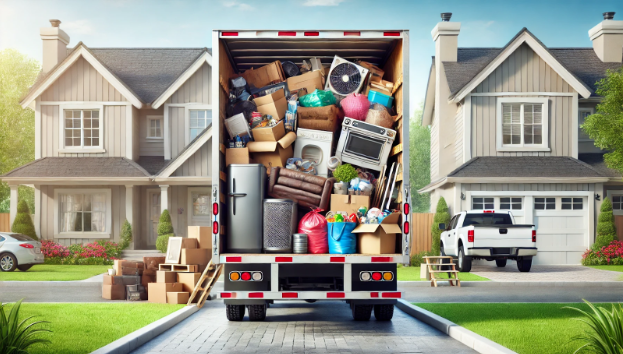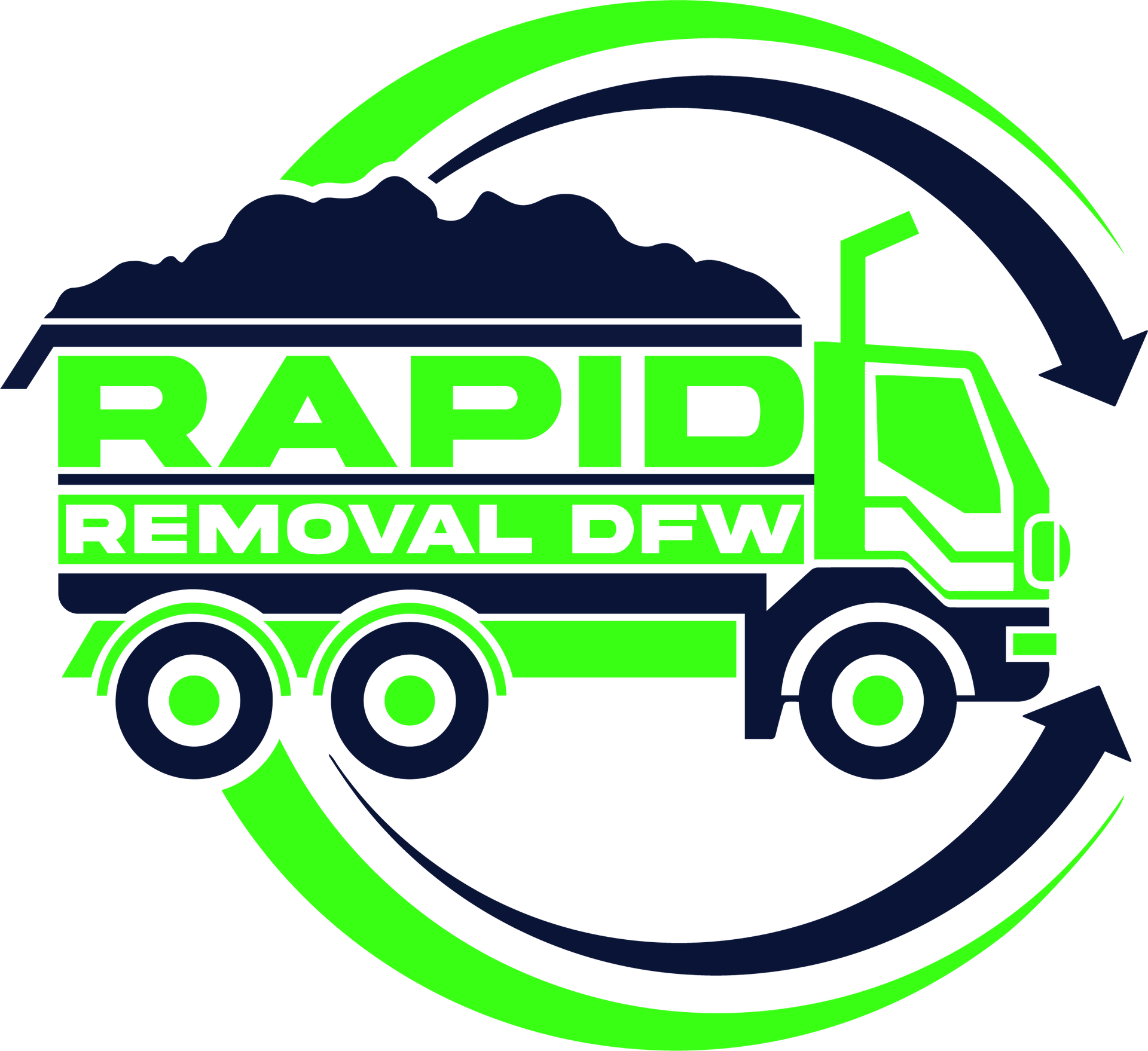
Dumpster Rental vs Junk Removal: Which is Right for Your Cleanup Project?
Household junk builds up fast—from old furniture to worn-out electronics, clutter seems to have a way of sneaking up on us. Disposing of household junk properly can feel overwhelming, but it doesn’t have to be. In this guide, we’ll go over simple, effective ways to handle household junk disposal responsibly and efficiently, so you can keep your home clutter-free.
Why is Proper Household Junk Disposal Important?
Whether it’s for a fresh start, preparing for a move, or making more space, proper junk disposal has a significant impact. Here’s why:
- Improved Home Environment: Decluttering can make your home more spacious, functional, and enjoyable.
- Environmental Impact: Proper disposal methods help reduce landfill waste and promote recycling, benefiting the planet.
- Health and Safety: Old items like appliances and electronics can contain hazardous materials. Disposing of these items properly reduces risks to you and your family.
Common Types of Household Junk
Understanding the types of household junk can help you decide on the best disposal method. Common items include:
- Furniture: Sofas, chairs, tables, and beds
- Appliances: Old refrigerators, microwaves, washing machines
- Electronics: TVs, computers, phones, and other gadgets
- Mattresses and Bedding: Heavy and cumbersome items that require special disposal
- Miscellaneous Clutter: Clothing, toys, books, and more
1. Furniture Disposal
Old furniture can be tough to get rid of. Here are some options:
- Donate: Many organizations accept furniture in good condition, such as Habitat for Humanity or Goodwill.
- Sell: Use online marketplaces like Craigslist, Facebook Marketplace, or OfferUp to sell pieces that still have value.
- Repurpose or Recycle: Some wood and metal furniture can be broken down and recycled. Check with your local recycling center for options.
Disposal Tip
Furniture disposal services can be a convenient choice for large or broken items that can’t be easily moved or donated.
2. Appliance Disposal
Large appliances are often cumbersome and require specific disposal due to environmental regulations.
- Retailer Take-Back: Many stores offer to take away old appliances when delivering new ones.
- Donate or Sell: Appliances that are still in working order can be sold or donated.
- Professional Recycling Services: Some appliances, like fridges and air conditioners, contain chemicals that require special handling.
3. Electronics Disposal
Electronics contain hazardous materials, like lead and mercury, which can harm the environment if not disposed of properly.
- E-Waste Recycling Centers: Many cities have dedicated e-waste centers for safe recycling of electronics.
- Donation: Some organizations accept used electronics if they’re still functional, like computers or TVs.
- Mail-Back Programs: Some electronics companies offer mail-back programs for specific devices, like phones and batteries.
4. Mattress Disposal
Disposing of mattresses can be challenging, as many landfills don’t accept them.
- Donation: If in good condition, mattresses can sometimes be donated.
- Recycling: Some facilities specialize in mattress recycling, breaking down materials like metal springs and foam.
- Professional Hauling Services: Many junk removal services can handle mattresses and other bulky items.
5. Miscellaneous Household Junk
For smaller items like toys, clothes, and books:
- Clothing Donations: Local charities or secondhand stores often accept clothing and accessories.
- Sell or Donate Books: Libraries, schools, and online marketplaces are great for unwanted books.
- Recycle: Items like cardboard, plastic, and paper can often be recycled curbside.
Table: Common Household Junk Disposal Options
| Item Type | Disposal Options | Considerations |
|---|---|---|
| Furniture | Donate, Sell, Recycle, Junk Removal | Check local donation centers |
| Appliances | Take-back programs, Sell, Junk Removal | Ensure proper handling for refrigerants |
| Electronics | E-waste recycling, Mail-back programs | Hazardous materials require special care |
| Mattresses | Recycle, Junk Removal | Some landfills don’t accept |
| Misc. Items | Donate, Sell, Recycle | Sort items for easier disposal |
DIY Disposal Tips: Organizing Your Big Cleanout
Organizing household junk disposal doesn’t have to be overwhelming. Here are some simple DIY tips:
- Sort Items by Type: Create piles for recycling, donation, and disposal.
- Use Clear Containers: Storing items in clear bins helps you quickly see what’s inside, making sorting easier.
- Label Everything: Label containers or bags with “Donate,” “Sell,” “Recycle,” and “Trash” to stay organized.
- Schedule Disposal Days: Spread out disposal tasks over several days to make it manageable.
Eco-Friendly Household Junk Disposal Options
Caring for the environment is easy with a few small changes to your disposal habits:
- Recycle Whenever Possible: Separate recyclables from general waste and take them to your local recycling facility.
- Choose Donation Over Disposal: Many household items can be given a second life through donation.
- Compost Organic Waste: Items like food scraps and yard waste can be composted to reduce landfill impact.
Green Disposal Tip
When buying new items, consider buying recycled or secondhand to reduce waste and support eco-friendly practices.
Frequently Asked Questions (FAQs)
Q: How do I know if an item can be recycled or donated?
A: For recycling, check your local recycling center’s guidelines. Many centers accept items like cardboard, certain plastics, and metal. For donations, most organizations prefer items in good condition. Items like gently used furniture, appliances, and electronics are usually accepted.
Q: Can I throw electronics in the trash?
A: No. Electronics contain hazardous materials and should be taken to an e-waste facility or recycled through a certified program.
Q: How much does it cost to hire a junk removal service?
A: Costs vary based on the volume of junk and location. Small pickups might start around $100, while larger cleanouts can cost several hundred dollars. Most companies offer free estimates.
Q: Is it better to sell or donate old items?
A: Both are great options. Selling can help you recoup some value, while donating supports local charities and provides items to those in need.
Q: Do I need a permit for a dumpster rental?
A: In many areas, you’ll need a permit if the dumpster is placed on a public street. Always check local regulations to avoid fines.
Cities we service
Services
All Rights Reserved | Rapid Removal DFW
